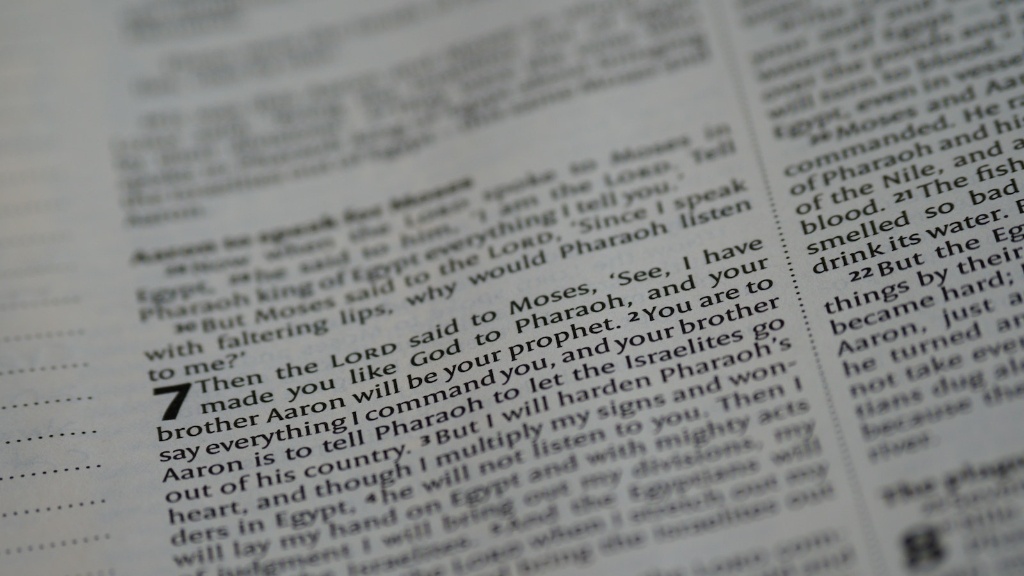Background Information
Jews are believed to be the followers of Judaism, the monotheistic religion originated in the Israelite people. In the Bible, there are references to the Torah, teachings and other related scriptures that have been read and interpreted by Jews for centuries. The Torah, which is usually referred to as the Five Books of Moses, is the central and most important text of Judaism. It contains commandments, instructions, and laws from God given to Moses and his followers to help them stay close to God. The Torah also contains stories and teachings of the Prophets and narrates the history of the Jewish people.
Many Jewish people take their faith seriously and regular Bible reading is a part of their daily religious practice. It is widely accepted that all Jews, both in the diaspora and in Israel, read and study the Bible in one form or another, but how much and how often is a matter of personal choice. While some Jews read their Bible every day, others read it less frequently. Even those who do not read the Bible may still study it in different forms, such as through song or prayer.
Biblical Texts
In Jewish scripture, there are three main collections of texts from which religious teachings and laws are derived: Torah, Psalms, and Proverbs. The Torah, also known as the Five Books of Moses, are read every year at the synagogue and through the home rituals of traditional Jewish families. Other books of the Bible, such as the Psalms and Proverbs, are read and studied on special occasions or at specific times of the year.
Jewish students often have opportunities to read and study the Bible in their religious classes. Students usually read and learn about the Torah, Prophets, and Writings. This includes study of the commandments, laws, and stories found in the Bible. In addition, students study different interpretations of the texts as well as commentaries written by Rabbis and Talmudic scholars throughout the centuries.
Perspectives of Jewish Scholars
Rabbi Joshua ben Levi states in the Talmud that “one who is wise reads the Bible twice daily”. Jewish scholars throughout the ages have expressed the importance of regular Bible reading and study. The 16th century Talmudic scholar Moses Isserles wrote that knowledge of the Torah and familiarity with the Bible is essential for a Jew to live a proper religious life. The 19th century Rabbi Samson Raphael Hirsch wrote that study of the Bible is the basis for a meaningful Jewish life.
In recent times, Jewish education has moved away from teaching Bible in schools. However, many scholars, including Professor Menachem Kellner of the University of Haifa, have argued that lesson to be learned from the Bible can still be studied in organized classes as part of a comprehensive Jewish education.
Contemporary Influences
In today’s world, there are a variety of ways in which Jews can access Bible readings. Special translations of the Bible, such as the Jewish Publication Society’s Jewish Study Bible, are widely available to individuals and synagogues. Additionally, many online resources provide access to Bible verses and commentaries written by contemporary Rabbis and scholars in a variety of languages.
Non-religious Jews may not read the Bible on a regular basis. A majority of them may cite moral, ethical, and spiritual differences with Biblical values as the main reason why they do not read the Bible. However, while some Jews may choose not to read the Bible, they could still benefit from understanding Bible stories, commandments and ethical principles, which are rooted in the Jewish tradition.
Exploring Jewish Identity Through Bible Study
For many Jews, studying the Bible is an essential part of exploring their identity. Bible study helps people learn about their heritage and about the values and ethics of their faith. Jewish-Americans in particular, could benefit from exploring the Bible both as an expression of their cultural identity, as well as to understand their faith better.
Jews of all backgrounds can appreciate the stories, commands, and laws found in the Bible. Even those who do not read the Bible every day, can study and learn from the Bible through organized classes, online resources, and special Bible translations. This can help them gain a better understanding of their faith, their heritage, and themselves.
Insights
Reading and studying the Bible can bring many spiritual and personal benefits to Jews. Through reading and studying the Bible, they can explore their heritage and identity, gain a better understanding of the values of their faith, and become more connected to their faith and to God.
Modern Interpretations
Modern interpretations of the Bible reflect the changing needs of the contemporary world. Rabbis, scholars, and students today use the Bible to explore topics such as morality, ethics, and gender equality. In doing so, Jewish people are engaging with the text in a new and progressive way, rooted in tradition yet open to new interpretations.
Reading Strategies
Different reading strategies can be used to study the Bible. Whether it is traditional academically-oriented readings or creative approaches to the text, people can gain insight and understanding through studying the Bible. Through a variety of strategies, varying in complexity, whether through study and interpretation or through episodic story-telling and retelling, Jews can draw from the long-established wisdom contained in this sacred text.
Creative Engagement
One of the most common and effective ways to engage with the Bible is through creative activities. By writing, singing, or performing the stories or principles contained within the Bible, Jews can gain a deeper understanding of their faith and engage both their minds and their hearts. Through these activities, Jews can become more connected to their faith, culture, and identity.
Conclusion
Reading and studying the Bible is a significant part of many Jews’ religious practice. Whether through regular study, creative activities, or more traditional means, Jews can gain insight and understanding of their faith and heritage through reading and studying the Bible. By reading the Bible and exploring the many interpretations of this ancient text, Jews can gain a deeper connection to their faith and to the history of their people.


